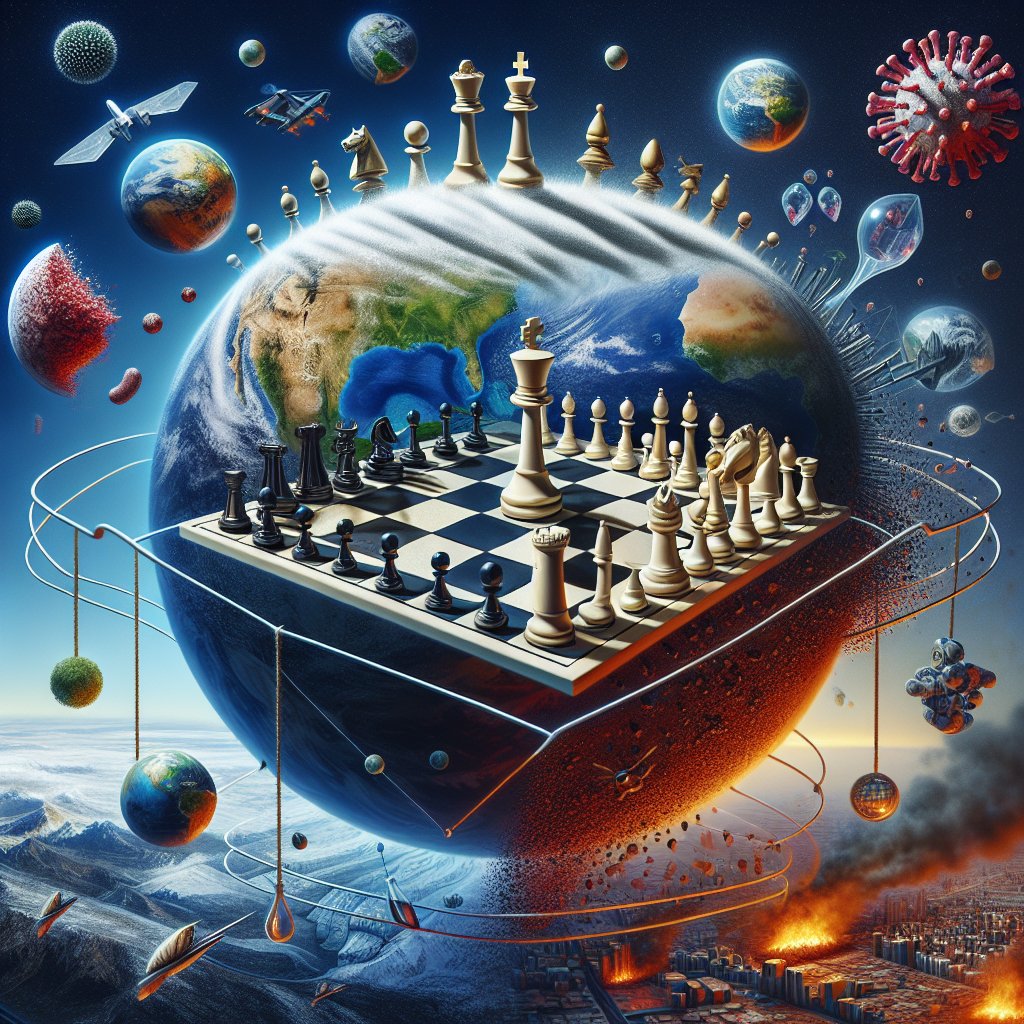Content created by AI
The Decline of Pax Americana and the Shifting Global Power Dynamics
As we near the end of another year marked by global disruptions, reflective contemplation is incumbent upon us. The world has borne witness to the calamities of war in various regions, the lingering pandemic, and the intensifying consequences of climate change. However, the more silent and perhaps more seismic shift is the gradual collapse of the Pax Americana—a term coined for the period of relative peace heralded by US dominance post-World War II.
The Pax Americana, which largely dictated the geopolitical chessboard through a blend of military might, economic muscle, and cultural influence, seems to be unveiling its final act. Where the twentieth century saw American hegemony as a cornerstone of international relations, the twenty-first century appears less willing to accommodate a singular leader. This has become evident in the inefficacies of the United Nations—a body conceived with the ideals of preventing conflict and establishing a rules-based international order—which has been beleaguered by indecision and selective application of norms.
As Western nations, namely the United States, grapple with internal political turbulence and external pushbacks to their interventions, their grip on global power slips. The poignancy of this decline was symbolized by the hurried evacuation of American forces from Kabul in August 2021, as the Taliban regained control—a telling counterpoint to Western claims of building democratic and sustainable state systems.
The misadventures in the Middle East, the rise of China, and Russia’s assertive foreign policy are not mere hiccups but indicators of a broader trend towards multipolarity. The US and its allies are adjusting to a reality where their sway over international affairs is not solely their own to wield. The Russian engagement in Syria, the Belt and Road Initiative by China, and even the regional ambitions of powers like Turkey and Iran, suggest an appetite for influence that extends beyond the Western construct.
Moreover, the Islamic world is in the midst of redefining its alignments, cautiously navigating between Western alliances and burgeoning partnerships with non-Western powers. The longstanding Israel-Palestine conflict underscores the complexities of these relationships, as the traditional Western support for Israel is scrutinized against growing sentiments of solidarity with the Palestinian cause within the Global South.
In this era of transition, the question of who will step up to lead the new world order—or indeed, if it will be a concert of powers rather than a solo act—remains open. As the former hegemonies recalibrate their foreign policies to the realities of a rapidly changing world, smaller states and emerging economies may well dictate a more pluralistic and equitable global arena.
The old narratives are being rewritten in an environment that demands fresh dialogues built on multipolarity, mutual respect, and a more democratic framing of international relations. While the decline of the unipolar power structure is indisputable, what will replace it remains uncertain. The world watches on, balancing on the tightrope of past and future, as it strides towards a new chapter in human history.










